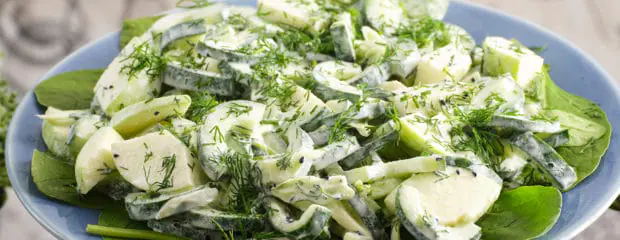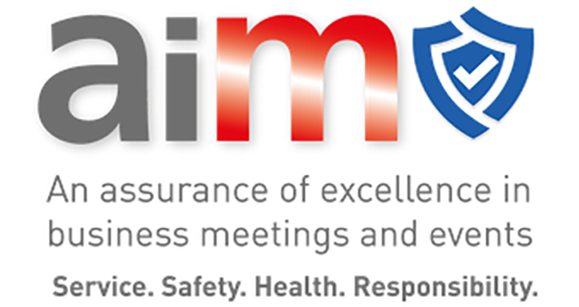Sustainability
Information about our work towards environmental and social sustainability.
At the Wellcome Genome Campus, we incorporate environmental sustainability into the decisions that we make across all areas of our work. The Campus is already an exemplar for environmental management, having achieved external accreditation for our efforts. We have renewable energy models, an active green transport strategy, and promote significant biodiversity across the Campus. However, in response to the scientific argument on climate change and the global demand being placed upon our natural resources, we wish to maximise the positive impact we could have over the next ten years, both locally and globally. To do this we have a Campus Environmental Sustainability Strategy and roadmap.
 The Conference Centre has received a silver Green Meetings award from Green Tourism, the largest and most established sustainable certification programme in the world. A Green Meetings Award means that a business works responsibly, ethically and sustainably, contributes to their community, is reducing their impact on the environment and aims to be accessible and inclusive to all visitors and staff.
The Conference Centre has received a silver Green Meetings award from Green Tourism, the largest and most established sustainable certification programme in the world. A Green Meetings Award means that a business works responsibly, ethically and sustainably, contributes to their community, is reducing their impact on the environment and aims to be accessible and inclusive to all visitors and staff.
Here you can find an overview of some the areas we reported on to achieve this award.
Environmental sustainability
Energy
Our campus has an energy management system in place certified to ISO5001:2018 and monitor our energy consumption regularly. We have clear energy targets in place and a dedicated energy and decarbonisation strategy. We have solar panels on the roof of Mulberry Court accommodation block, and at another location on Campus.
We have no B or higher efficiency rated appliances, and we have an efficient heating and hot water system in place. At least 50% of our internal and external lighting is LED and we have installed systems and procedures to ensure lights switch off automatically or are turned off when not required.
Waste
We have a waste management system and we monitor and measure our non-organic and organic waste. General waste data is available for each collection location on Campus so we can see which buildings produce the most. We segregate recycling streams including cardboard, metal, soft plastics, glass and cans, and collect data that shows how much we use. We carry out due diligence on all our waste contractors ensuring that the correct waste carrier and processing licenses are in place as well as the correct waste transfer paperwork.
We have implemented systems and policies to avoid and reduce organic waste. We have identified where our food and organic waste is being generated and have set targets for its reduction. Food waste is weighed and then goes for anaerobic digestion.
Frying oil from both Hinxton Hall and the other catering facilities on Campus are converted to biodiesel onsite, by our talented gardening team. This is then used to power vehicles on Campus, including lawnmowers.
Our gardening team also collect the coffee grounds from the Hall kitchen, and this either goes into our compost with other green waste or it is used directly on the soil as a conditioner or to deter pests eating the plants. Any green waste produced at the Hall is composted and reused around six months later, to mulch beds. This improves the soil structure and water holding capabilities of the ground. With an increase in droughts this is vital to help with sustainability; it also reduces the need to water, and increases soil biodiversity.
This year we have set up Conference Centre-specific compost bays: three bays in the Hall gardens and six in residential areas. This way we travel less to get rid of green waste, which used to go to an area the other side of campus, reducing our use of fuel and our carbon footprint. By localising the compost it is returning known soil bacteria fungi and invertebrates to the area, rather than importing different species by using composted waste from elsewhere on site. The bays are turned roughly every eight weeks to circulate air and generate heat.
Learn about our catering partner’s commitment to reduce food waste in supply chains:
https://restaurantassociates.co.uk/news/restaurant-associates-on-a-mission-to-reduce-food-waste-in-supply-chains/
Single use items
- We have reviewed and regularly monitor and measure the number of single use items we use and set targets for reduction.
- All plastic water bottles in our accommodation have been replaced with water machines in the corridors and we provide canned water in our bars.
- We serve Clipper tea - these teabags are plastic free.
- Our coffee beans are delivered packaging free, and we provide cups that are recyclable and sell reusable cups in our shop.
- We do not have plastic cutlery or disposable salt and pepper sachets.
Chemicals
We are using cleaning and washing products and systems that are not damaging to the environment and are approved for use against COVID-19. We use soap and toiletries that are paraben free. We do not use any pesticides or herbicides unless we have to. We use integrated pest management, prioritising physical means for removal, before chemical ones.
Water
We monitor and measure our water usage throughout all of the facilities on Campus. Our current target is to achieve a 25% reduction in water use and we have a dedicated strategy detailing relevant interventions as a part of our overall sustainability strategy.
We have automated systems installed on a number of our toilet facilities to reduce the amount of water being used for flushing.
Carbon
We have a carbon management plan, which details how we manage carbon emissions. We have invested in renewable energy technology on site, and know how much energy has been generated.
Procurement
Campus wide, we screen all our suppliers and tenders for their commitment to sustainability, ethical trade practices, and equality.
Biodiversity
We have undertaken actions to support biodiversity on site to encourage wildlife and biodiversity.
Examples of this include:
- A large tree was felled due to disease and so our gardening team used a large part of the trunk to create a habitat tree for biodiversity. In a relatively short time, stag beetles (protected in the UK) have been using the habitat. Blue oyster mushrooms have also been growing in this area.
- Woodchip is produced from last season’s waste and used on the woodland walkways across Campus.
- Untreated pallet wood is used to make bird boxes.
Venue and delegates
Travel
We have information about public transport, and how to get to our venue on our website, and promote public transport and group travel.
We monitor business and staff travel, are aware of the type of transport and distances travelled, and have taken measures to reduce the impact of the travel undertaken, such as physical measures in place to support active travel.
Catering
At our meetings and events, we provide ethically and responsibly sourced and produced food and drink, as well as locally-grown or produced food and drink, which reduces food miles.
Our partners Restaurant Associates have the highest Food Made Good accreditation by the Sustainable Restaurant Association, which covers sourcing, society and environment. They are also committed to Net Zero by 2030. Visit our food sustainability page to find out more about our Restaurant Associates' sustainability actions and pledges: https://www.hinxtonhall.org/food-drink/food-sustainability/
Technology
We use technology or innovation to improve the sustainability of our meetings and events, and have initiatives to reduce the materials used within our meetings and events. We have invested in virtual and hybrid conferencing equipment for all of our meeting rooms, and assess and review areas where technology or innovation could be used to improve the sustainability of our meetings and events.
Recreation facilities
We provide low-carbon leisure activity options for our customers to enjoy in their spare time, such as
- running routes around Campus beyond, for which we can provide delegates maps.
- a tennis court, which delegates can use and hire rackets and balls from reception
- a trim track and outdoor gym
- facilities for cyclists, such as bike racks and lockers.
History
We have and exhibition about local culture and history in the Hall Foyer as well as online: https://genome.gallery/exhibition/hinxton-hall-estate-georgians-jet-engines-and-genes/
Social sustainability
Equality
We have installed features, measures, or adaptations to support people with different accessibility requirements.
Visit our accessibility page for more details: https://www.hinxtonhall.org/your-event/accessibility/
In 2022, we joined the Sunflower Lanyard Scheme run by the charity Hidden Disabilities to support people with unseen disabilities and differences. By wearing a sunflower lanyard anyone can discreetly indicate they may need some additional support. We also advertise and give these lanyards out to conference guests.
We have a range of training and policies in place that ensure all our customers, staff, and suppliers are treated fairly and equally.
Well-being
Wellbeing and mental health are included in our staff induction.
Our event delegates are able to enjoy extensive outdoor spaces and physical recreation facilities (running, tennis, trim track, outdoor gym) to boost their wellbeing.
Our catering partner is also conscious of the relationship between food and well being, providing a range of menu options.
We have well-established practises, procedures, and policies to ensure the health and safety of our customers and staff that include all COVID -19 related measures, which are over and above those recommended by Government, and have achieved a COVID standard for our protocols.
Community
We have a volunteering policy for staff, who are allowed to take two days paid leave each year for volunteering.


